Table of Contents
Vitamin B12 (Cobalamin) is one of 8 B-vitamins. B12 is water-soluble and found in every single cell in your body.
Vitamin B12 is essential for the synthesis of DNA, RNA and neurotransmitters, the maintenance of myelin sheaths protecting neurons, and red blood cell formation.
Deficiency in B12 results in myelopathy (spinal cord disease), neuropathy (nerve disease), sensory disturbances, imbalance when walking, weakness, and psychiatric problems ranging from cognitive and behavioral problems to dementia.
Maintain your optimal Vitamin B12 levels with the Performance Lab NutriGenesis® Multi for men and women.
Vitamin B12 (Cobalamin) helps:
- Cerebral Circulation: Vitamin B12 is needed to regulate homocysteine. High homocysteine levels are linked to inflammation that can lead to blood vessel damage. And possible plaque buildup leading to heart attack or stroke.
- Neurotransmitters: Vitamin B12 is a cofactor in the synthesis of neurotransmitters dopamine, GABA, norepinephrine, and serotonin. Affecting alertness, cognition, memory and mood.
- Mood: Vitamin B12 helps increase brain serotonin and dopamine levels. Decreasing anxiety, depression, fatigue and pain.
Overview
Vitamin B12 (Cobalamin) is one of 8 water-soluble B-vitamins that are absolutely vital to the highly optimized brain. And is essential to every cell in your body including your brain.
Vitamin B12 as a nootropic can improve alertness, energy levels, boost attention span, concentration, intelligence and memory. B12 supplementation can help relieve stress, depression, insomnia and help balance your mood.
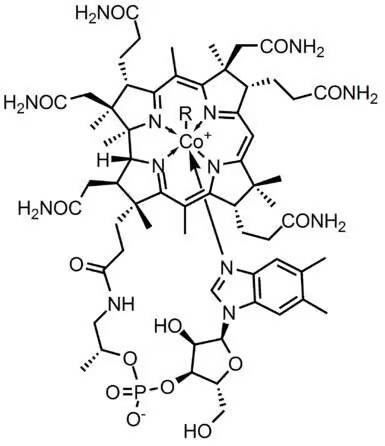
Vitamin B12 has the coolest and most complex chemical structure of any nootropic we explore here on Nootropics Expert. Vitamin B12 is called “Cobalamin” because it contains the rare earth element cobalt.[i]
Vitamin B12 is absorbed in your intestines from food or a supplement using a process called intrinsic factor. The vitamin is then transferred to transcobalamin II (TC-II/B12) which acts as a transporter.
Through a very complex process which I’m not going to try to explain here, B12 is converted into the active forms coenzyme 5′-deoxyadenosyl and methylcobalamin (MeB12).[ii]
Foods rich in Vitamin B12 include fish, shellfish, meat (especially liver), poultry, eggs, milk and milk products.[iii] The two best sources by far of B12 are clams and liver.
You cannot get adequate amounts of Vitamin B12 from plants. Vegetarians and vegans are especially in danger of B12 deficiency. Regardless of what food and supplement manufacturers say.
Plant foods contain analogs of B12 which are similar to, but not the same as, Vitamin B12. They bind to B12 receptors and block your intake of true B12.
Trying to get your Vitamin B12 from yeast products like Red Star Nutritional Yeast or Marmite is also problematic. These products do not naturally contain B12 but are fortified with it.
And Vitamin B12 is light sensitive. If stored in open bins or clear plastic bags or jars, B12 vaporizes and disappears.
Meat and animal products are your best source of natural Vitamin B12. But once again, relying solely on food for adequate B12 is difficult because it is destroyed during cooking.[iv]
You are much safer using a good Vitamin B12 supplement for your nootropic stack. See “Available Forms” for more.
How does Vitamin B12 (Cobalamin) work in the Brain?
Vitamin B12 (Cobalamin) boosts brain health and function in several ways. But two in particular stand out.
- Vitamin B12 increases cognition. Vitamin B12 is a precursor in the biosynthesis of all major neurotransmitters in your brain including acetylcholine, dopamine, GABA, norepinephrine and serotonin.
Vitamin B12 is an integral part of the one-carbon cycle involved in the synthesis of methionine. This amino acid, methionine donates the methyl group required for methylation to occur.
This biochemical process helps synthesize neurotransmitters, myelin (the sheath that protects neurons), and keeps homocysteine levels in check. Elevated levels of homocysteine have been associated with several neurodegenerative diseases including Alzheimer’s and Parkinson’s Disease.
Even mild Vitamin B12 deficiency has been associated with accelerated cognitive decline. Researchers at Tufts University examined data from 549 men and women enrolled in the Framingham Heart Study.
They focused on scores on the Mini-Mental State Examination (MMSE), which is a short list of questions and tasks used to screen for dementia. The subjects were divided into 5 groups, based on their vitamin B12 blood levels.
MMSE scores declined by 0.24 points per year over the 8-year follow-up period. Cognitive decline was faster in the bottom 2 groups that had the lowest levels of Vitamin B12.
The researchers concluded that “having plasma (blood) Vitamin B12 levels from 187 to 256.8 pmol/L… predicts especially rapid cognitive decline”.[v]
- Vitamin B12 helps reduce depression. Vitamin B12 is a precursor in the biosynthesis of GABA and serotonin. GABA is an amino acid and neurotransmitter produced by glutamate in your brain. This inhibitory neurotransmitter prevents other ‘excitatory’ neurotransmitters from being released. Resulting in an anti-anxiety and calming effect.
Serotonin is a neurotransmitter made from the amino acid tryptophan. This inhibitory neurotransmitter governs the stimulatory neurotransmitter dopamine from overwhelming your brain. Adequate serotonin levels make you feel confident, easy-going, flexible, happy and positive.
One case study out of India reviewed the case of a 57-year-old woman who was given months of anti-psychotic and antidepressant medications. Including 2 rounds of electro-shock therapy before anyone thought to check her Vitamin B12 levels.
This woman’s symptoms included anxiety, constipation, movement abnormalities, perceptual disturbances (hearing her name called), lethargy, tearfulness and finally catatonia. She remained depressed, suicidal and lethargic despite her treatment.
Within 2 months of identifying her Vitamin B12 deficiency and subsequent treatment, this woman reverted to her baseline 14 years before. And remained stable with no additional treatment.[vi]
How things go bad
Vitamin B12 deficiency usually causes neurological and psychiatric issues in adults aged 40 – 90. B12 deficiency rarely affects younger people. But can be a problem if the mother is deficient during pregnancy.
A B12 deficiency can manifest as disease of the spinal cord (myelopathy), disease of the nerves (neuropathy), sensory disturbances, gait abnormalities, weakness, cognitive and behavioral disturbances and dementia.
↓ Neuron myelin sheath is damaged
↓ Neurons degenerate
↓ Weakness, vision problems, cognition issues, abnormal reflexes
↓ Bladder and erectile dysfunction
↓ Tingling sensation, pain and numbness
↓ Delusions, hallucinations, memory decline, depression and dementia
↓ Brain shrinkage
↓ Impaired DNA synthesis and replication
Vitamin B12 deficiency can often be caused by Pernicious anemia which is an autoimmune disease that affects the mucous membrane layer of the stomach. This can be a result of destruction of parietal cells, lack of hydrochloric acid, or a failure to produce intrinsic factor.
Parietal cells are required to create intrinsic factor to supply your body with adequate Vitamin B12. When these cells are damaged, intrinsic factor is not produced. And B12 cannot be absorbed for use by your body and brain.
Parietal cell death can be caused by excess alcohol consumption, ulcerative gastritis, H. pylori infection, gastric bypass surgery and even age.
Intrinsic factor is required for Vitamin B12 absorption from food or supplements. If left untreated you experience B12 deficiency even if you’re getting B12 from food or supplements.
If you or your doctor suspect Vitamin B12 deficiency and does a blood test, the labs may show B12 levels within the bell curve. But it doesn’t reflect how much B12 is actually in your cells.
Pernicious anemia is sometimes passed down through families. This is most common in those of Scandinavian or northern European descent. Grave’s Disease, and Addison’s Disease. Type-1 diabetes can also cause pernicious anemia.
Review the symptoms of deficiency listed here. Do your research. And if you suspect you may be deficient in Vitamin B12, tell your doctor and take action now. If your doctor tells you it’s not a problem, please find another doctor!
Vitamin B12 (Cobalamin) benefits
When you take Vitamin B12 (Cobalamin) as a nootropic supplement, it is transported across your intestinal wall by the carrier protein intrinsic factor. It is then degraded, freeing cobalamin to be attached to transcobalamin II for transport to cells in your body.[vii]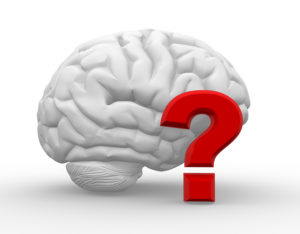
Vitamin B12 is a co-factor in the one-carbon cycle that is required for the synthesis of DNA, RNA, neurotransmitters (acetylcholine, dopamine, GABA, norepinephrine and serotonin), and the myelin sheath that protects each of the neurons in your brain.
This one-carbon pathway is involved in the synthesis of the amino acid methionine. This amino acid donates methyl groups for the methylation of DNA, RNA, neurotransmitters and myelin.
Methionine is synthesized from the amino acid homocysteine. Preventing high levels of this amino acid to accumulate will prevent problems throughout your body including neurodegenerative disease.
Cobalamin is also required for the conversion of methylmelonyl CoA into succinyl Coenzyme-A for the myelin sheath that protects your neurons. Problems with this conversion degrades myelin. Causing problems with your central nervous system and damaging axons on the neurons in your brain.
Vitamin B12 can:
- Reduce the severity and frequency of asthma attacks and allergies
- Reverse early signs of Alzheimer’s Disease if caught in time
- Lift your mood by boosting the “happy molecule” serotonin in your brain
- Reduce the side effects of Metformin in diabetes patients
- Provide optimal concentration, focus and memory
- Reduce the risk of macular degeneration and prevent blindness
- Maintain healthy hair, skin and nails
- Remove homocysteine and protect your heart
- Raise sperm counts and improve sperm mobility in men
- Prevent neuron damage if you lack intrinsic factor
- Reduce some of the symptoms of schizophrenia
- Help prevent osteoporosis and build strong bones
The key message here is to maintain optimal Vitamin B12 levels in your body and brain. Don’t be duped by marketers selling Vitamin B12 energy drinks boasting more energy. Or a magic pill to boost memory, or aid in weight loss.
If you have a specific health problem like pernicious anemia or are deficient in this vitamin, then B12 can help. If you maintain optimal levels of Vitamin B12 in your system, supplementing will not increase your energy levels.
Vitamin B12 is a key brain vitamin that plays an important role in a healthy nervous system and optimally functioning brain. Low levels of B12 can definitely lead to poor memory and cognition.
How does Vitamin B12 (Cobalamin) feel?
Neurohackers who supplement with Vitamin B12 report a reduction in brain fog and better sleep.
People on statins for cholesterol and metformin for diabetes report a dramatic decrease in pain.
Neurohackers report better focus and mood, colors seem brighter and more intense, energy levels improve, and an overall improved sense of well-being.
If you are Vitamin B12 deficient you may feel a big boost in energy. And feelings of deep exhaustion can disappear within a few days.
Vitamin B12 Clinical Research
Much of the research in Vitamin B12 and B12 deficiency are presented as individual ‘case reports’ on one person.
One report in French was about a woman with no history of psychiatric problems. But upon admission she was uncooperative, disoriented, had memory and attention problems, a sleep disorder and she looked older than her real age.
This woman was depressed, had a guilt complex, devalued herself, and her movements and speech were very slow. A lab test revealed she had a problem with intrinsic factor.
Her therapy was Vitamin B12 replacement using hydroxycobalamin 1,000 mg per day for 10 days. Her mental state improved dramatically within a few days.[viii]
Another case report was of a middle-aged man with Obsessive-Compulsive Disorder (OCD). He was given methylcobalamin therapy and symptoms of OCD dramatically improved.[ix]
Vitamin B12 and Folate Prevent Alzheimer’s
A study in Stockholm explored the association of low Vitamin B12 and folate levels with the occurrence of Alzheimer’s Disease. A population based study sampled 370 non-demented people aged 75 years or older and who had not been treated with B12 and folate.
This group was followed for 3 years to detect the incidence of Alzheimer’s. The researchers compared low levels of B12 and folate with people who had normal levels of the two vitamins.
Subjects who had low levels of Vitamin B12 or folate had twice the risk of developing Alzheimer’s. And this association was even stronger in subjects with good baseline cognition.
The study concluded that Vitamin B12 and folate may be involved in the development of Alzheimer’s Disease. And that monitoring blood B12 and folate concentration in the elderly may be relevant for the prevention of Alzheimer’s Disease.[x]
Vitamin B12 (Cobalamin) to Treat Depression
Research shows that people with major depression often have low blood levels of folate and Vitamin B12. Low folate levels are also linked to poor response to antidepressants. And treatment with folic acid and/or Vitamin B12 has been shown to improve response to antidepressants.
Folate and Vitamin B12 are involved in one-carbon metabolism in which SAM-e is formed. SAM-e donates methyl groups that are crucial for neurological function.
Increased homocysteine is a functional marker of both folate and Vitamin B12 deficiency. Increased homocysteine levels are found in depressed patients. One study out of Norway showed increased blood levels of homocysteine were associated with increased risk of depression (but not anxiety).
The researchers concluded that doses of both folic acid (800 mcg daily) and Vitamin B12 (1 mg daily) should be tried to improve treatment outcomes for depression.[xi]
Vitamin B12 recommended dosage
Vitamin B12 is water-soluble, and considered non-toxic in recommended doses.
A varied diet including meat, seafood and milk products should provide enough Vitamin B12 to prevent deficiency. But vegetarians and vegans cannot get enough B12 from food and should supplement.
Typical recommended dosage for nootropic benefit and optimal brain health is 100 mcg or 0.1 mg of Vitamin B12 per day.
Neurohackers older than 40 and those who have a problem with Vitamin B12 absorption should use 100 – 400 mcg or 0.1-0.4 mg of B12 per day.
If you test Vitamin B12 deficient, recommended dosage is 2,000 mcg daily for a week, then 1,000 mcg doses of B12 once per week for a month. Thereafter, your maintenance dose is 1,000 mcg monthly.[xii]
Vitamin B12 Side Effects
Vitamin B12 (Cobalamin) is non-toxic. So is considered well-tolerated and safe.
Doses as high as 2 mg of Vitamin B12 daily by mouth or 1 mg monthly by injection have been shown to produce no significant side effects.
When high doses of Vitamin B12 are given orally, only a small percentage can be absorbed which likely explains the low toxicity levels.
Proton pump inhibitors and other drugs used to treat acid reflux is known to prevent absorption of Vitamin B12. So you may need to take B12 sublingually.
Antibiotics, drugs to treat gout and metformin to treat diabetes all decrease Vitamin B12 levels or B12 absorption. If you use any of these drugs you should have your levels checked and possibly supplement with Vitamin B12.
Nitrous oxide used as an anesthetic and recreational drug oxidizes and inactivates Vitamin B12. So you should likely get tested and possibly supplement with B12.
Type of Vitamin B12 to buy
Vitamin B12 is available as tablets, capsules, liquid drops, sublingual tablets, sprays and lozenges.
The sublingual tablets, sprays and lozenges are marketed as more absorbable or bioavailable. Some clinical studies do not support this claim but user experience shows otherwise.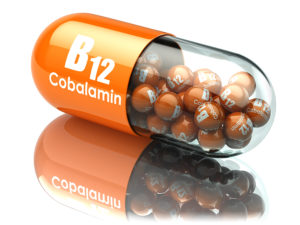
Logic tells us that a lozenge or spray absorbed under your tongue gets into your bloodstream and across the blood-brain barrier more readily than something you swallow and need to digest.
Low quality Vitamin B12 supplements, and B12 found in multivitamins or B-Complex formulas, is usually cyanocobalamin. This form of B12 is not well absorbed, and produces a small amount of cyanide in your body (cyanocobalamin).
Higher quality Vitamin B12 comes as methylcobalamin or adenosylcobalamin which are the forms of B12 naturally occurring in your body.
Methylcobalamin is your better choice if you are deficient in B12, or have the MTHFR genetic defect which reduces your ability to methylate this vitamin.
One good option is using a multivitamin like the Performance Lab® NutriGenesis Multi which uses this nature-identical form of B12.
I prefer the Performance Lab® multi because it’s more potent, it’s biologically active and I’ve found to be a far more effective multi compared to every other multivitamin supplement I’ve ever used.
Performance Lab® uses their own priority NutriGenesis® vitamins and minerals which are grown on probiotic, plant and yeast cultures in a state-of-the-art lab.
Adenosylcobalamin works better for some who want to avoid the cyanide that comes in cyanocobalamin, and who can’t tolerate methylcobalamin.
Hydroxycobalamin is another high quality form of Vitamin B12 that converts to methylcobalamin in your body.
If you test Vitamin B12 deficient, your doctor may encourage you to get Vitamin B12 shots. Especially if you have pernicious anemia, nerve damage or chronic digestive problems like Crohn’s Disease or ulcerative colitis.
But research has found that taking oral B12 supplements is as effective as B12 shots.[xiii] And user reviews support this finding.
Note that Vitamin B12 needs to be balanced with Vitamin B6 and Folate (folic acid) for best results if using as a nootropic supplement.
Another good option is using a BioActive B-Complex like the Click for Performance Lab® B-Complex
which contains nature-identical forms of both Vitamin B12 and folate.
Nootropics Expert Recommendation
Vitamin B12 (Cobalamin) 100 – 400 mcg per day
 I recommend using Vitamin B12 as a nootropic supplement.
I recommend using Vitamin B12 as a nootropic supplement.
Your body does not make Vitamin B12 on its own. So to get its benefits you must get it from food, or take it as a supplement.
I recommend staying away from cheap cyanocobalamin B12 supplements. Go with Methylcobalamin, Adenosylcobalamin, or Hydroxycobalamin.
Vitamin B12 is especially helpful for those dealing with brain fog, fatigue, nerve pain, sleep and memory problems.
Vitamin B12 supplementation is critical for anyone over 40 years old because of absorption issues with B12 from food.
Vitamin B12 is also particularly helpful if you are using proton pump inhibitors for acid reflux, have Type-1 diabetes, or show positive for dementia or Alzheimer’s.
The recommended dosage for Vitamin B12 deficiency is 2,000 mcg daily for a week, then 1,000 mcg doses of B12 once per week for a month. Then your maintenance dose is 1,000 mcg monthly.
Remember that Vitamin B12 needs to be balanced with Vitamin B6 and Folate (folic acid) for best results if using as a nootropic supplement.
One excellent option for getting your daily dose of Vitamin B12 and folate is with BioActive B-Complex supplement – the Click for Performance Lab® B-Complex.


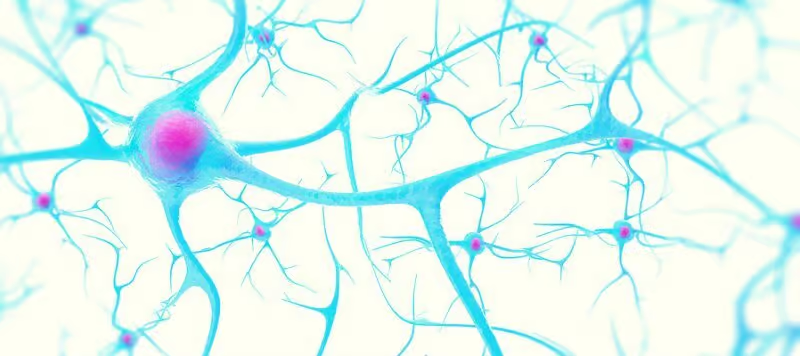
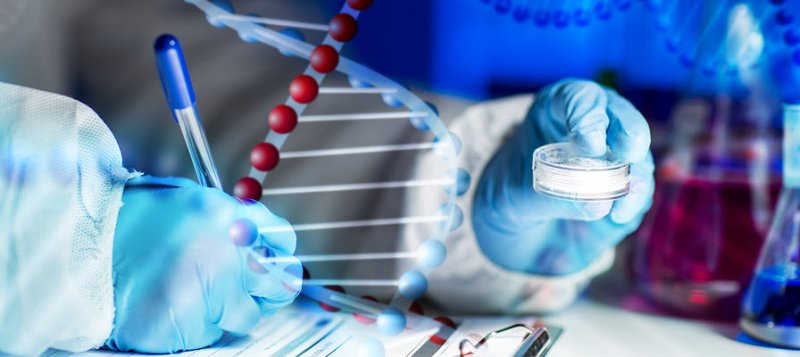





Join The Discussion - 88 comments
Nitin
January 11, 2022
Hi sir, in July I was tested with low vit. B12 160 pg/ml and I am experiencing these symptoms from last year muscle twitching , restless leg , loss of muscles , depression , low libido , balancing problems and after 6 months of 1500 mcg oral treatment and when I tested again it was 1500 pg/ml in Dec. So I want to ask how many months will my body take to recover completely from above symtoms.
David Tomen
January 11, 2022
Nitin, please read the last paragraph in this section of my review: https://nootropicsexpert.com/vitamin-b12-cobalamin/#dosage-notes. You are doing the right thing by supplementing AND getting tested. But once your Vitamin B12 levels are optimal that is when you need to back off and just use a maintenance dose because too much B12 will also cause problems.
If you are within range and have been for 2 – 3 months and are still experiencing some of these symptoms then something else is wrong. You could and likely are deficient in some other critical vitamins and minerals. Most people are and are not aware that they are deficient.
Please keep in mind there is no “one pill” solution to optimal health. Everything must be in balance. For example, supplementing exclusively with Vitamin B12 and ignoring B6 and B9 usually ends up with excess histamine.
BTW, some of your symptoms are also associated with not enough dopamine. So, you may want to investigate that and consider boosting dopamine with L-Tyrosine and see if that helps.
Benjamin
August 7, 2021
Hey David
I got life extensions Vitamin B12 “Methylcobalamin” 500mcg
even if I am not low on B12 would it hurt to take it each morning?
David Tomen
August 7, 2021
Benjamin, it depends on what your B12 levels are. If your B12 levels are within range then you would use that supplement once ever two weeks.
sander
June 24, 2021
Hi David!! I read on some websites that hydroxycobalamin would be a form that would deliver b12 more slowly to the body, so we would have more b12 throughout the day, unlike methylcobalamin, which is quickly absorbed. On the other hand, I also read that they indicate hydroxycobalamin only to someone who doesn’t support methylcobalamin. Could you help us with your experience in nootropics, please David? Thank you very much!!!
David Tomen
June 24, 2021
Sander, it’s the methylcobalamin that your body and brain uses. Other forms like hydroxycobalamin must turn into methylcobalamin before you body uses it. So I don’t see the point of using anything other than methylcobalamin.
Sander
June 24, 2021
thanks, David!!
Claudia
May 25, 2021
Hello,
I would like to hear your thought on this what’s written on a certain manufacture’s site about their Vitamine B complex:
Here is what it states on Dr. Mercola’s website: “Vitamin B Complex contains B12 in the form of cobalamin. As you know, I recommend taking the methylcobalamin form of B12. The Panmol vitamin B complex starts with a mixture of methylcobalamin, cyanocobalamin, and adensylcobalamin (which is converted methylcobalamin – the form you want). The resulting form in the harvested complex is labeled cobalamin and includes all the different forms. Because it is now organically bound to the plant and no longer in isolated form, the end result B12 is different from the starting materials.”
David Tomen
May 25, 2021
Claudia, Higher quality Vitamin B12 comes as methylcobalamin or adenosylcobalamin which are the forms of B12 naturally occurring in your body. Cyanocobalamin is not natural and contains a cyanide molecule. Your body uses methylcobalamin not needing to convert to anything which seems to me to be the way to go.
Claudia
May 26, 2021
Thank you!
Tiffany
March 5, 2021
I wanted to buy a multi vitamin from Performance Labs and I noticed in their Nutritional section it only listed Vitamin B6 Vitamin B9 Vitamin B12 but not the actual form? Am i missing something? Also, where do you buy a good b complex vitamin outside of performance lab?
David Tomen
March 6, 2021
Tiffany, the Performance Lab Multi uses P-5-P, methylfolate and methylcobalamin for B6, B9 & B12. They just don’t spell it out anywhere on their site which I think is a mistake. So, no you’re not “missing something”. It’s just not spelled out in plain English like it should be in my opinion.
All they say is that they are grown in Saccharomyces cerevisiae (brewer’s yeast) to ensure each vitamin mimics what you’d naturally get from food. It’s explained on this page: https://www.performancelab.com/pages/nutrigenesis
Jozef
November 12, 2020
Hello David, I want to ask, what vitamins or minerals could my mom reduce her tremor. She has it probably from mental exhaustion. I think so. Thank you
David Tomen
November 14, 2020
Jozef, one study conducted in Croatia use 750 mg GABA twice per day. And L-tryptophan, thiamine (vitamin B1), riboflavin (vitamin B2), niacin (vitamin B3), pantothenic acid (vitamin B5), vitamin B6, folate (vitamin B9), and methylcobalamin (vitamin B12) 3-times per day (https://medcraveonline.com/JNSK/JNSK-07-00242.pdf) and was successful with long-term use.
The other study used high-dose thiamine injected into the muscle (https://www.ncbi.nlm.nih.gov/pmc/articles/PMC5884259/) which was success for essential tremor. To mimic this study you could try 400 mg Sulbutiamine (https://nootropicsexpert.com/sulbutiamine/) twice per day and see if that works. You can get that here: https://bit.ly/3jYs447
Jozef
November 15, 2020
Thank you very much David. I will try it.
Adjai
October 12, 2020
Hello David
Can vitamins b12 causing ED?
Thanks
David Tomen
October 13, 2020
Adjai, Vitamin B12 deficiency cause Erectile Dysfunction. And homocysteine that is out of whack can cause ED. B12 along with Vitamins B6 and B9 are needed to keep homocysteine in check. If any of those are deficient including B12, homocysteine levels rise. Causing ED.
Steve kirby
March 15, 2020
Hello David
I had very low vit b12 levels. I have auto immune thyroid disease. Also low cortisol. My current regime is daily thyroxine. Morning & afternoon cortisol. Monthly injections of vit b12. Every thing about my healthy was fine. My doctor left & a new doctor questioned my monthly vit b12. So I tried increasing the time gap to the text book 3monthly. My symptoms were depression, suicidal thoughts, my close up vision got blurry to the point I though I might have to get glasses. I had a vit b12 shot Thursday & all of those symptoms have gone.
Hence my question is what can I say to my doctor to convince him that money injection is optimal for me?
Steve kirby
March 15, 2020
Monthly injection
David Tomen
March 15, 2020
Steve, it depends on a couple of things. How confident are you talking to this doctor. And do you have any clinical evidence that low B12 causes those symptoms. It does but you need to be able to print something out that this person respects. Like a clinical study.
Remember, this doctor works for you. You are paying him/her to do a job. He only has the authority that you give them. I’ve fired more doctors than I’ve bothered to keep track of. And have no problem getting into a debate with any doctor on things I know more about that he does.
I give doctors some slack because they don’t learn this stuff in medical school. And often don’t have the time to study it on their own.
But if on the other hand they’re not interested in anything other than drugs they can prescribe and get a kickback for… and they don’t care about how I physically ‘feel’. Then that person does not have my respect. And I’ll tell him what I’m going to do rather than the other way around.
Where do you get the B12 from? The doctor’s office? If not then don’t tell him anything. But if it is from his office, see above … 🙂